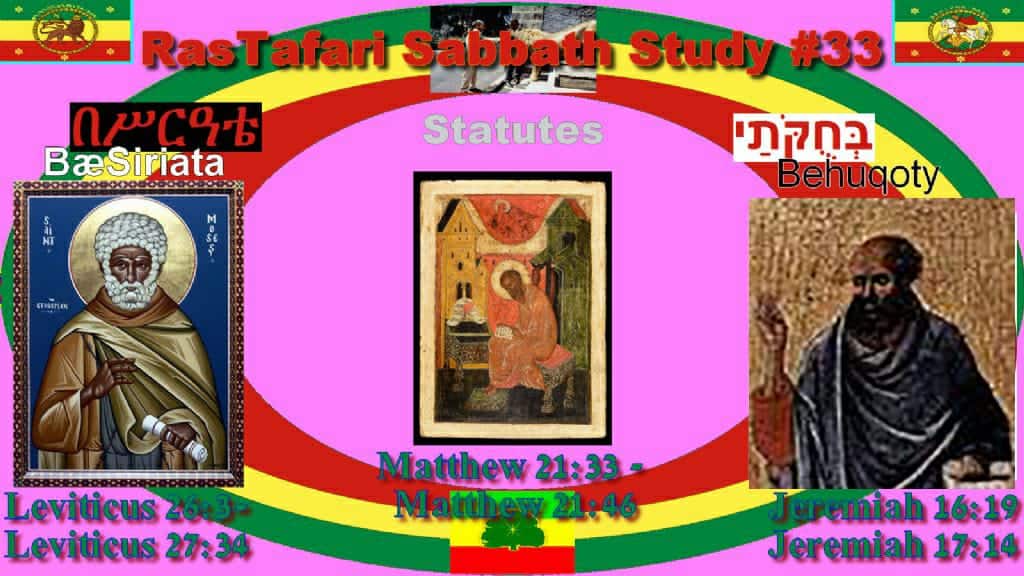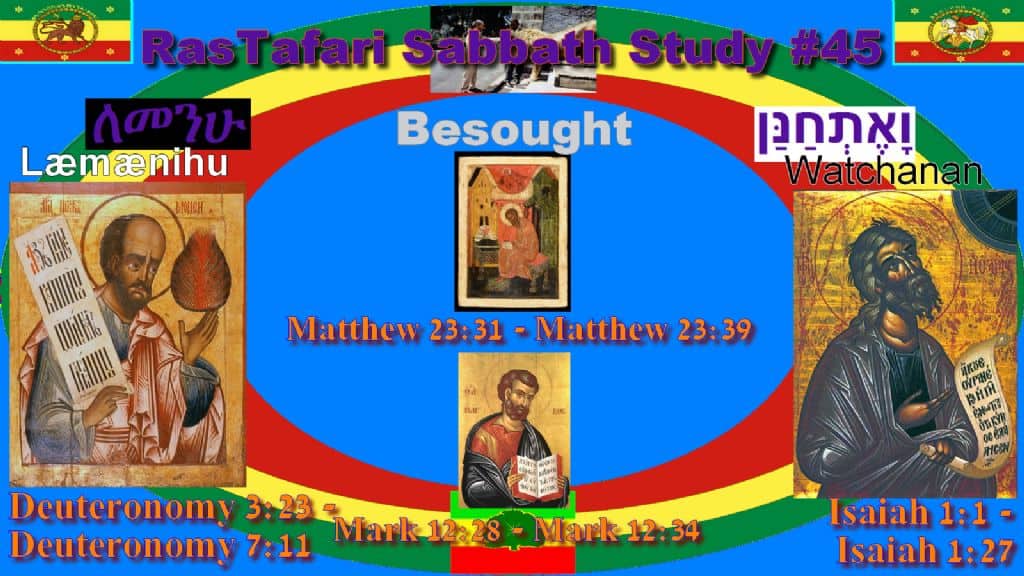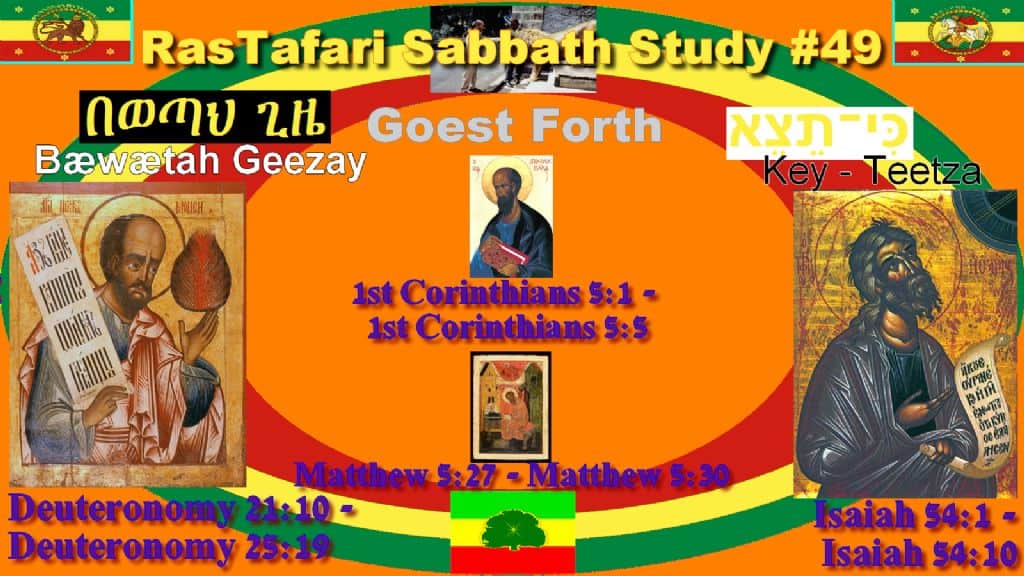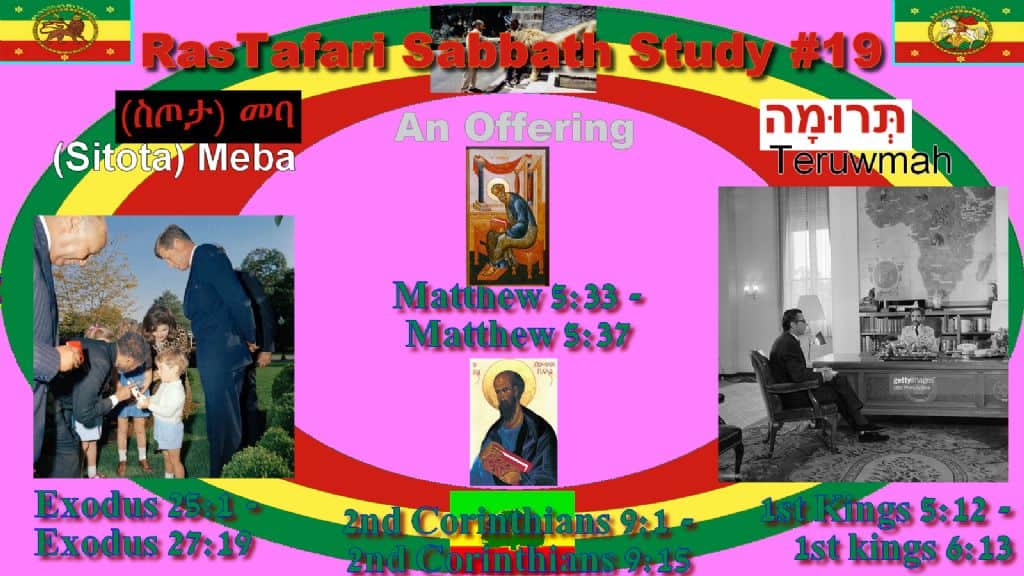This Week's Portion #24
Vayikra | ויקרא | "And He called" ጠርቶ | T’err’to [T’erito]
*For a PDF version of All the Torah Portions Schedule, click here to download!
2. Prophets Reading
Isaiah 43:21-44:23
3. New Testament Reading
Hebrews 10:1-18; Hebrews 13:10-15
Portion Outline - TORAH
- Leviticus 1:1 | The Burnt Offering
- Leviticus 2:1 | Grain Offerings
- Leviticus 3:1 | Offerings of Well-Being
- Leviticus 4:1 | Sin Offerings
- Leviticus 5:14 | Offerings with Restitution
Portion Outline - PROPHETS
- Isaiah 43:1 | Restoration and Protection Promised
- Isaiah 44:1 | God's Blessing on Israel
- Isaiah 44:9 | The Absurdity of Idol Worship
- Isaiah 44:21 | Israel Is Not Forgotten
Portion Study Book Download & Summary
VAYIKRA Hebrew Book of Leviticus - Torah Portion Vol.3 (FREE PDF)
The title “Leviticus” is derived from the Greek Septuagint (LXX) version of the Torah. The book of Leviticus is predominantly concerned with Levitical rituals. An older Hebrew name for the book was “The Laws of the Priesthood,” but in Judaism today, it is referred to by the name Vayikra (ויקרא), which means “And He called.” Vayikra is the first Hebrew word of the book, which begins by saying, “And the LORD called to Moses and spoke to him from inside the tent of meeting” (Leviticus 1:1).
Leviticus describes the sacrificial service and the duties of the priests. It also introduces ritual purity, the biblical diet, the calendar of appointed times, laws of holiness and laws relating to redemption, vows and tithes. In addition, Leviticus discourses on ethical instruction and holiness. The twenty-fourth reading from the Torah is eponymous with the Hebrew name of the book it introduces: Vayikra. This portion introduces the sacrificial service and describes five different types of sacrifices.
Portion Commentary
Obedience and Sacrifice
Thought for the Week:
What gift can you get for the God who already has everything? The Hebrew word for sacrifice, korban, could be translated as “something brought near,” or to put it another way, it could be translated as “gift.” The Israelites were to view the sacrifices as gifts that they could bring to God.
Commentary:
He shall lay his hand on the head of the burnt offering, that it may be accepted for him to make atonement on his behalf. (Leviticus 1:4)
In Romans 12:1, Paul urges us to present our bodies as “living and holy sacrifice, acceptable to God.” What does this mean in practical terms? Is Paul asking us to build altars and literally sacrifice ourselves upon them? Of course not. Paul is using the sacrificial language as an illustration for obedience. He is urging us to set aside our stubborn wills, our wayward flesh and our self-centered egos and force them to submit to the commandments of God. When we set aside our own personal desires and inclinations for the sake of obeying God, we are sacrificing ourselves for the sake of heaven. Instead of offering a bull, a goat or a lamb to God as a gift, we are offering ourselves. This is why the prophet Samuel declared that obedience is better than sacrifice:
Has the LORD as much delight in burnt offerings and sacrifices as in obeying the voice of the LORD? Behold, to obey is better than sacrifice, and to heed than the fat of rams. (1 Samuel 15:22)
Through the prophet Hosea, the LORD declared, “I delight in loyalty rather than sacrifice, and in the knowledge of God rather than burnt offerings” (Hosea 6:6). Yeshua was fond of quoting this verse to prove that God was more concerned with ethical behavior than perfunctory ritual obedience. This is an important principle for all religious people. Regardless of one’s religion, it is always easier to attend to ritual concerns than to live godly lives. The writer of the book of Hebrews says, “Do not neglect doing good and sharing, for with such sacrifices God is pleased” (Hebrews 13:16).
In today’s world there is no Tabernacle or Temple in which a person might offer a sacrifice. If we desire to give God a gift today, what can we give Him? We can give no better gift than our own humble submission to His will. We can give Him the simple sacrifice of grateful obedience.

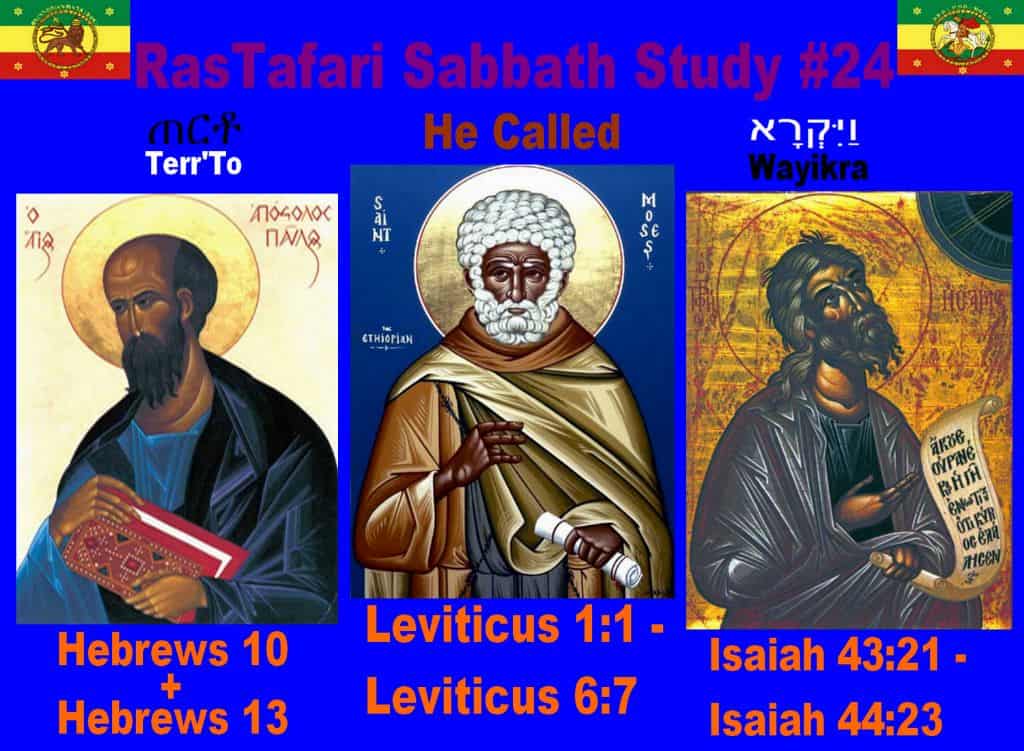

![Vayikra | ויקרא | "And He called" ጠርቶ | T’err’to [T’erito]](https://rastafarigroundation.org/wp-content/uploads/2016/11/Discipleship-Radi0-RasTafari-Bible-Readings-24_.jpg)
![Vayikra | ויקרא | "And He called" ጠርቶ | T’err’to [T’erito]](https://rastafarigroundation.org/wp-content/uploads/2016/11/Discipleship-Radi0-RasTafari-Bible-Readings-24_2.jpg)
![Vayikra | ויקרא | "And He called" ጠርቶ | T’err’to [T’erito]](https://rastafarigroundation.org/wp-content/uploads/2016/11/Discipleship-Radi0-RasTafari-Bible-Readings-24_2_.jpg)
![Vayikra | ויקרא | "And He called" ጠርቶ | T’err’to [T’erito]](https://rastafarigroundation.org/wp-content/uploads/2016/11/Discipleship-Radi0-RasTafari-Bible-Readings-24_2_1.jpg)
